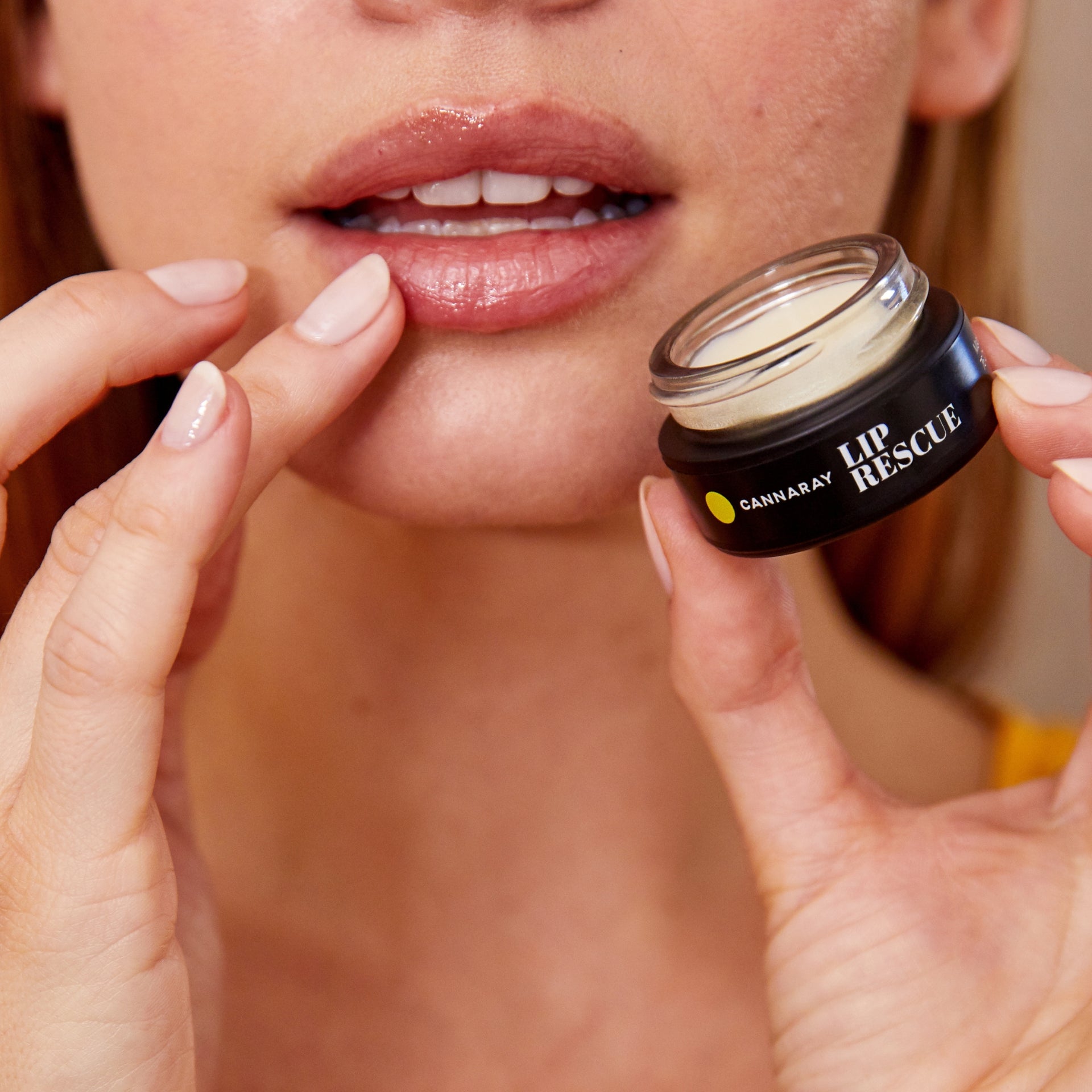Women’s health is an ongoing journey, with the body constantly shifting through various phases, from the first period to menopause. Recently, perimenopause has become a significant talking point alongside menopause, as women share their experiences with hot flushes, mood swings, and sleep disturbances that can disrupt daily life. We want to keep this important conversation going.
Both menopausal stages are a natural and normal transition, yet still not talked about enough, leaving many women unprepared for what’s ahead. The reality is that too few of us are openly discussing the symptoms of both perimenopause and menopause and how they affect our lives.
In this article, we’ll explore the differences between these two stages, key symptoms to look out for, and effective ways to manage them—such as the benefits of using CBD for menopause, for example.

What is Menopause?
Menopause is the point in time that marks the end of your menstrual cycle. It's diagnosed 12 months after your last menstrual period and happens as oestrogen and progesterone levels go down. However, before you reach the 12-month mark, you may experience a host of menopause symptoms as your body strives to adjust to the hormonal changes you're experiencing.
When Does the Menopause Start?
This will be different for everyone. However, the NHS states that menopause usually occurs between the ages of 45 and 55, as your oestrogen hormone levels start to decline. In the UK, the average age to start is 51, but around one in 100 women experience menopausal symptoms before they turn 40.
What is Perimenopause?
The term literally means ‘around menopause’. It signals the reproductive system slowing down, which happens as the body produces less oestrogen, progesterone and testosterone. These hormones are known as ‘the sex hormones’ and are essential for all stages of reproduction, from puberty to pregnancy. Perimenopause is when you have symptoms of menopause, but your periods have not stopped. Perimenopause ends, and you reach menopause after 12 months without a period

What are the Symptoms of Menopause & Perimenopause?
Symptoms of menopause and perimenopause vary from person to person. It's important to know they are different for everyone, and there are lots of ways to support them (which we’ll cover a bit later). But first, the main culprits…
Hot Flushes
75% of women experience hot flushes - the sudden feeling of being hot and dizzy - making this one of the most common symptoms of perimenopause. Experts suggest avoiding caffeine, spicy food and alcohol, which may widen or restrict blood vessels, causing flushing.
Brain Fog
If you’ve ever walked into a room and forgotten why or have lost your train of thought mid-sentence, you’re not alone. Changes in hormone levels can contribute to a lack of focus, a symptom of perimenopause affecting around two-thirds of women.
Difficulty Sleeping
Lower levels of progesterone can lead to disturbed sleep patterns. Sleep is essential for healthy cognitive function, so lack of rest fuels other well-documented symptoms of perimenopause, including brain fog and headaches.
Mood Swings
Unbalanced hormones have a lot to answer for, including irritability and a fluctuating mood. Many women experiencing perimenopause and menopause symptoms will be familiar with the disorientating pendulum swing of high to low mood, so keep reading for ways to support.
Muscle Aches and Joint Pain
Bone density and muscle mass may decrease with reduced levels of oestrogen. Eating more calcium- and Vitamin D-rich foods, like dairy yoghurt, dark leafy green vegetables, and mushrooms, can help. Getting some sunshine on your skin also helps produce essential vitamin D.
Headaches
Fluctuating hormones can increase headaches and migraines. Try eating regular snacks to avoid dips in blood sugar (this can spike hormone levels), make sure you’re getting enough sleep, and (we know this is a tough one) try to reduce stress where you can.

How to Support Your Body Through Menopause
Seeing the full list of menopause symptoms doesn’t feel… great. But there are lots of ways to support these changes in the body. Knowing the symptoms is the first step to managing them, and we’re on hand with tips to help ease the transition.
Start a Sleep Routine
Sleep is one of the best things you can do for your body, period. Try a wind-down routine in the evenings to support better quality sleep for improved focus, mood, and energy by morning. Our top tips?
- Avoid screen time a few hours before bed (the blue light can suppress melatonin, the sleep hormone).
- Go to bed around the same time every night to help the body keep to a regular sleep schedule. It’ll help you drift off more easily.
- Keep Sleep Wellness Gummies on your bedside table. Take two gummies an hour before bed to let sleep-supporting ingredients Vitamin B6, Zinc, and Lemon Balm work their magic.
- If you're already struggling to sleep, read Why Can't I Sleep? 5 Things Keeping You Awake
- If your sleep routine is all over the place, read What is Sleep Hygiene? 8 Healthy Habits to Try
- If you want quick, easy, natural sleep solutions, read 8 Natural Home Remedies for Sleep to Try Tonight
Eat a Healthy Diet
Hormonal changes during menopause can affect energy levels, cognitive function, and bone density, so it’s important to get all the vitamins you need to keep your body healthy. Aim to eat 30 different types of plants a week—including fruit, vegetables, and grains—for a nutritional and diverse diet.
To cover all bases, take two Menopause Wellness Gummies daily. They’re packed with essential vitamins, including hormone-balancing Vitamin B6, energy-boosting Vitamin B12, and Zinc to reduce mood swings, with a tasty tutti frutti flavour.
Boost your energy levels with plenty of vitamin C, which contributes to the reduction of tiredness and fatigue. Alongside vitamin D3 and zinc, you’ll find 225% of your daily vitamin C dosage in a daily serving (two capsules) of the Bright Days CBD Capsules, giving you the support you need to level up your energy from day to day.
Embrace Regular Exercise
Many symptoms of perimenopause can be improved by exercise, including clearing brain fog and strengthening joints. The NHS recommends 150 minutes of moderate exercise a week. A brisk walk outside, a yoga class, or HIIT circuit training are all great options—anything to get your body moving.
Weight training can be particularly good during perimenopause to strengthen bones and muscles, helping to support the body through hormonal changes. CBD Muscle Balm tackles achy muscles with soothing Aloe Vera and Arnica. Learn how to give yourself a soothing CBD massage to ease tension and restless legs quickly.
Take Time to Relax
The antidote to mood swings, brain fog, and anxiety? Relaxation. However you find your calm, from a hot bath to a cosy evening with Netflix, carve out some time to chill at home. Our non-negotiable for relaxing nights is to light the Power Down CBD Candle. It’s formulated with a blend of Santal, Amber, and Musk scent notes, scientifically proven to make you feel more relaxed. If you’re struggling to quieten loud thoughts, try a breathing exercise, guided meditation, or listen to a sound bath to boost the good vibes.
Keep Your Cool
Sometimes, the hot flushes can feel never-ending. But there are ways to stay cool and calm amidst the dizzy spells. Caffeine may increase flushes, as do hot drinks. Try swapping your usual latte for an iced tea spiked with the citrusy Bright Days CBD Oil Drops.
Wear breathable fabrics like cotton and linen in light layers you can take on and off as needed. Invest in a fan for a cool breeze on demand. Massage ice globes gently over your face, neck, and chest for instant cooling (and sculpted cheekbones—a win-win).
Take Zinc to Ease Brain Fog
Zinc (found in whole grains, meat, and nuts) may help support you through one of the key menopause symptoms: ‘mental fog.' A decrease in concentration is common as your body changes, but zinc is said to contribute to normal cognitive function. If you're looking for extra ways to keep your mind sharp, try taking up a new hobby or learning a new skill to stimulate your mind with fresh ideas that keep the ‘fog' at bay.
Track Your Trigger Foods
Keep track of your trigger foods—those that tend to lead to hot flushes. One of the easiest ways to do this is by creating a food diary, complete with the times you eat each meal or snack. Over time, you may start to see patterns with certain foods and menopause symptoms. Common triggers tend to be caffeine, alcohol, and spicy foods, so don’t be surprised if these turn out to be your key culprits.
Prepare for Night Sweats
If you’re experiencing night sweats—even on the coldest nights—switch up your bedtime routine with lighter bedsheets and pyjamas. Opt for breathable fabrics, such as microfibre (which absorbs moisture) or percale (a type of cotton that feels cool to the touch). You should also avoid crowding the bed with too many cushions and throws. Plus, if it’s not too cold outside, it can help to keep a window open while you sleep.
Talk to Your GP
One last thing! If you're finding any of your menopause signs particularly troublesome, it may be helpful to talk to your GP. Whether it's hot flushes, insomnia, or bone weakness you're struggling with, they'll be able to advise on the best course of treatment for your symptoms.
Discover the Benefits of CBD for Menopause
Menopause can be tough, but you don’t have to face it alone. Whether it’s hot flushes, sleepless nights, or mood swings, CBD for menopause can offer the support you need. From easing muscle aches to helping you sleep better, CBD oils and edibles can naturally help manage some of the common symptoms of menopause, giving your body the balance it needs.
Ready to feel more like yourself again? Explore our range of CBD oils, CBD capsules, and CBD gummies designed to support you through every phase of menopause. Take the first step towards feeling your best—your wellness journey starts here.





























